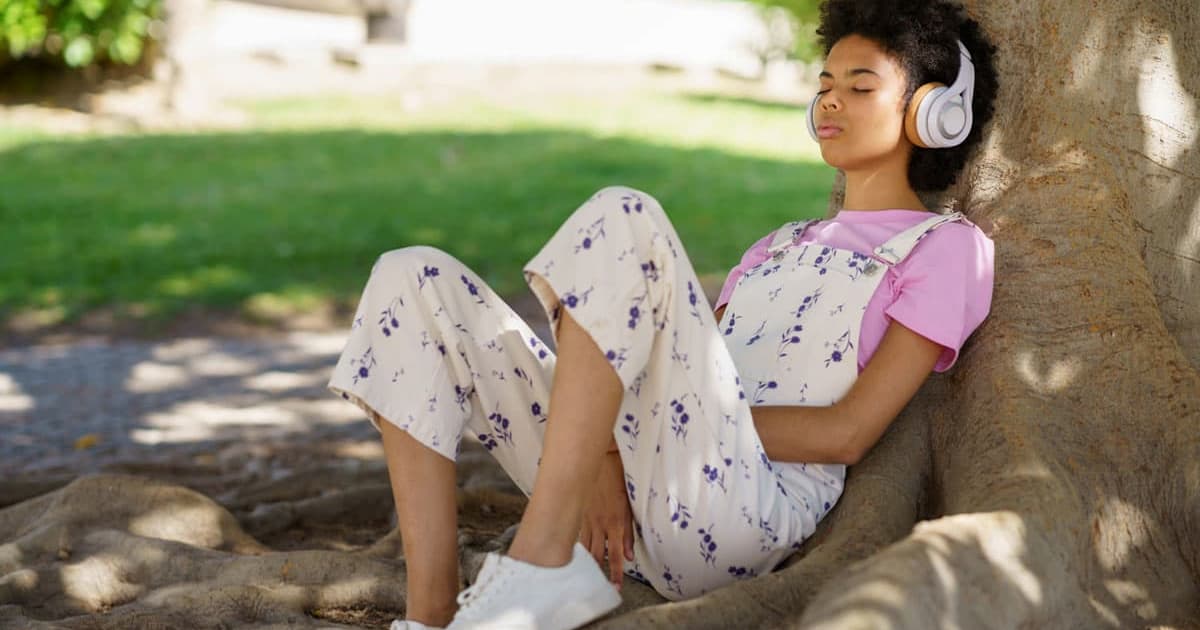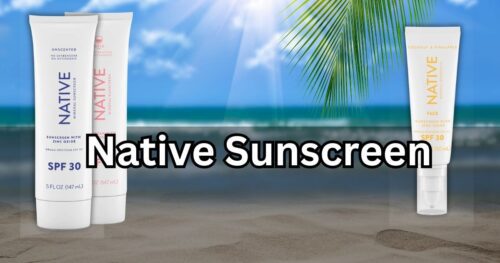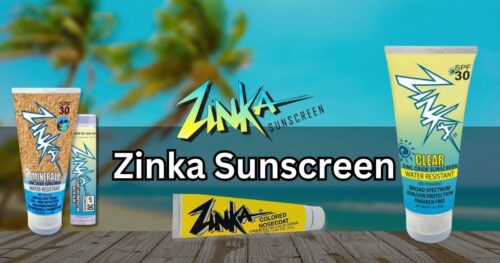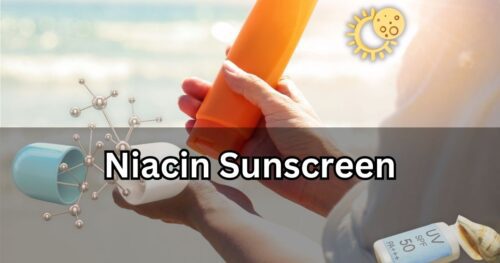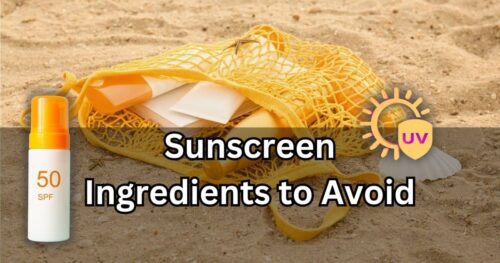Yes, you can still get sunburn even if you’re in the shade, as there are enough UV rays present in the shade to cause redness and sunburn. However, the chances are lower compared to sunburn in direct sunlight.
A study revealed that it could take up to 35-60 minutes to get sunburned under an umbrella placed on dry grass.
While a north-facing shade which is close to trees, can have five times fewer UV levels, meaning the chances of sunburn, in this case, will be much lower.
The type, quality of shade, intensity of sunlight around, reflection, and many other factors determine sun damage. But why can you get sunburned even in the shade? Let’s understand various factors and how to prevent them.
There are three types of known UV rays emitted by the sun:
- UVC Rays: UVC rays get blocked by the earth’s ozone layer and do not reach the earth’s surface.
- UVB Rays: UVB rays can be reflected and bounce off various objects and can even reach shaded areas. They cause sunburn and, in worse situations, skin cancer.
- UVA Rays: UVA rays are the longest rays of the three and have deep penetration ability. They can pass through glass, shade, and clothing and can cause various skin issues, including melanomas.
Table of Contents
Can You Get Sunburned Through Glass

If it’s a regular glass without UV protection film, then yes, you might get a sunburn, but chances are low. However, there are still many risks other than sunburn. Let’s understand why.
A standard glass blocks most UVB radiations, while some might pass through depending upon the thickness of the glass. But it fails to protect against UVA rays, which can cause cancer and aging.
Combining UV protection glass and UV protection film can protect from all UVB and 97% of UVA rays.
Tan Through Glass
The answer is yes if you’re wondering whether you can get a tan through the glass. Continuous exposure to non-UV protection glass can give you a tan because a tan is caused when skin gets damaged by UV rays.
Do House Windows Block UV Rays?
House windows block most UVB rays but can not block UVA rays. It is advisable to use sunscreen if you sit close to the window.
- Install windows with UV laminated sheets
- Dark tinted windows
- Use sunscreen if you spend long time sitting close to non UV protected windows
Can You Get a Sunburn Through a Car Window?

Most windshields are treated with UV protection films and can block all UVB and up to 96% of UVA rays.
However, the side window is different. It blocks most UVB radiations even if it’s not coated with UV protection film. But it’s important to know that a typical side window does not block all the UVA rays, which may cause cancer and aging. According to research, most side windows block only 71% of UVA rays. However, not all automobile manufacturers are the same; some coat side windows with UV protection film. It’s important to keep this factor in mind when choosing a vehicle.
Research shows that dark-tinted glass can effectively block most UVA rays. Although laws prevent tinted windows in many countries.
It is equally important to understand that the most effective UV protection films are transparent. So there is a solution to this problem without tinting the windows.
Recommendations:
- Use sunscreen daily with at least 30+ SPF factor.
- Car windows should be of UV protection coated film.
- Wear clothing with UPF rating of a minimum of 30-40 UPF
The skin cancer foundation recommends the usage of UV protection film-coated glasses. We should use these windows and glass in schools, houses, commercial buildings, and other public facilities.
These products include:
- Low-emittance coatings, which are virtually invisible layers of metal or metallic oxide deposited on a window surface to limit UV radiation
- Tints and films made of high-tech laminates of polyester and metalized coatings.
Related: Can Your Eyes Get Sunburned
Can you get sunburned under an umbrella?
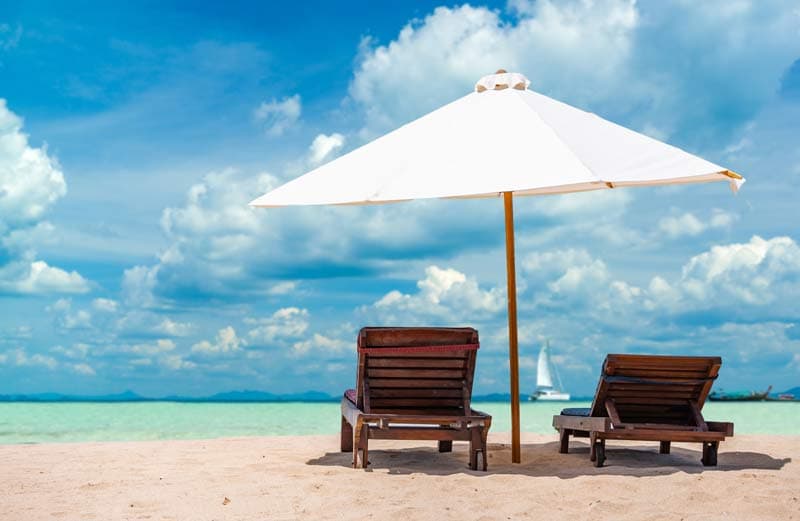
Yes, it is possible to get a sunburn under an umbrella. The umbrella fabric does not block all UV radiations coupled with reflected UV light from surrounding may lead to a sunburn.
34% of the harmful UV radiations from the sun are not blocked by an average beach umbrella. Those radiations can still damage your skin. Therefore it is imperative to use sunscreen even in the shade of an umbrella.
Sunburn From Indirect Sunlight
If you are on a beach under the shade of an umbrella, the chances of sunburn are higher as compared to when you are in the shade surrounded by plants and trees.
UV rays in sunlight are reflected from almost any surface. For example, sand and water on a beach reflect harmful UV rays, which can damage your skin even though you might be sitting in the shade of an umbrella.
A similar study found sitting under an umbrella, or a roof does not completely protect your skin from the sun’s harmful UVB radiation.
A shade structure with enough overhang is recommended to minimize exposure to scattered and reflected UV rays.
Does Hair Protect From The Sun?
Yes, hair can protect from harmful UVA and UVB radiation. This protection increases with the density and thickness of hair. Hair act as a natural barrier against UV-induced skin cancers.
According to Skin Cancer Foundation if you have thin hair or bald spots in your head, you should use a hat with at least UPF 50.
You should use stick sunscreens or balms if you have a bald head. These are easy to use and provide sun protection.
Can You Get Sunburned Underwater?
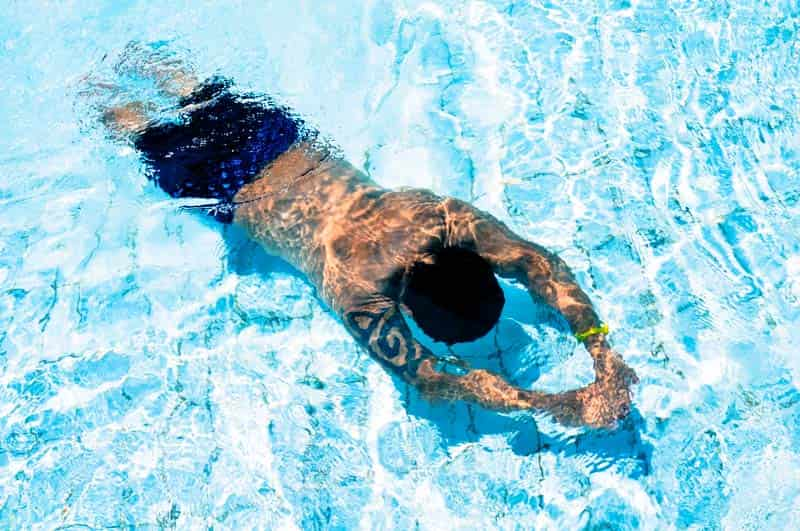
Yes, you can get sunburned even when underwater. Sun rays not only reflect off from the surface of the water but also penetrate deep inside it. The clearer the water, the deeper the penetration of sun rays.
In fact, the amount of UV rays that penetrate the water is much more significant than the amount reflected. According to research, if the intensity of the UV radiation index is 14 outside, it is found to be 7 at a depth of 2 meters in the water.
Recommendations:
- Use waterproof sunscreen when going for a swim
- Apply sunscreen again every 90-120 minutes
- Try to wear UV-protective swimwear with UPF-rated fabric
- Take breaks and stay in the shade as much as possible
- Keep yourself hydrated
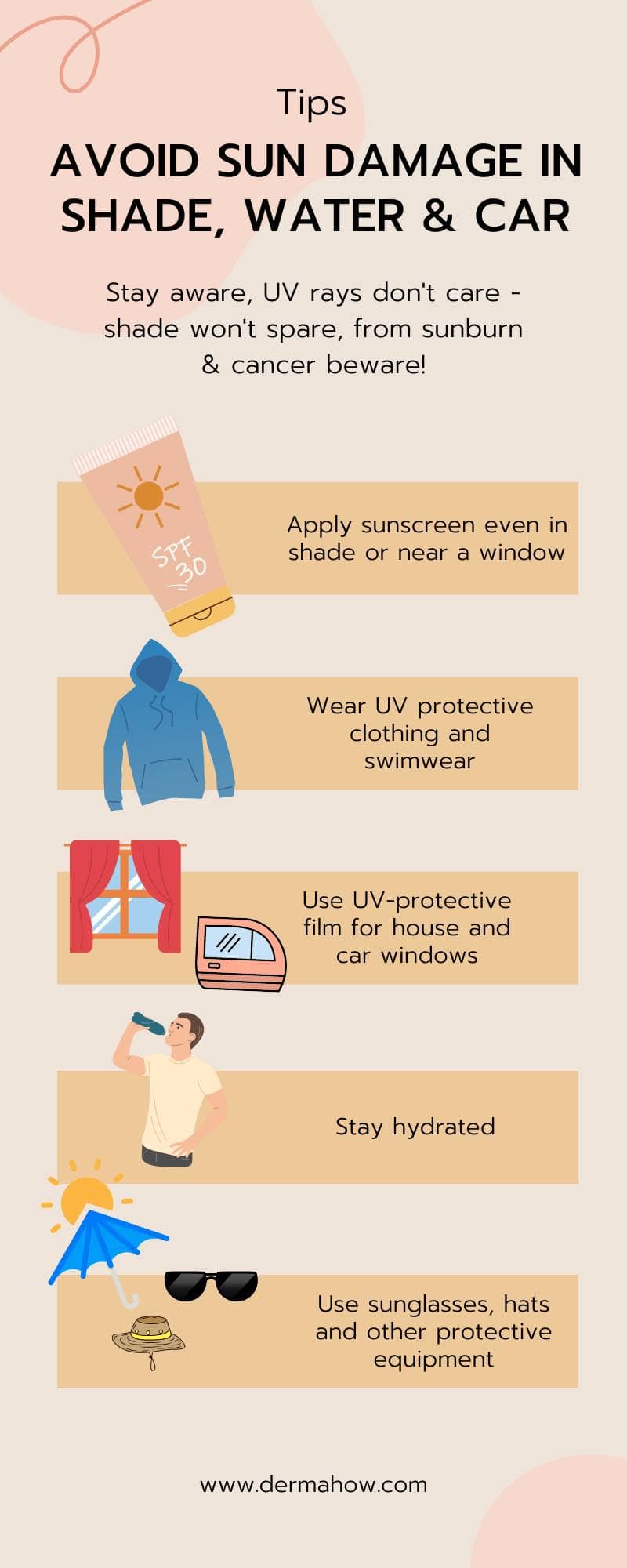
Can You Get Sunburned Through Clothes?
The color and fabric of our clothing can impact how much ultraviolet (UV) radiation penetrates our skin.
Harmful UV light can penetrate white clothes more quickly than darker ones. Additionally, these rays can penetrate the polyester fabric more easily than cotton. So, darker and densely woven clothes provide better protection.
UV Protection Clothing & Chemical Laundry Additives
Using high quantities of sunscreen can harm the neurological, endocrine, and developmental systems. As an alternative, chemical laundry additives and UV fabrics are now available; the latter are graded on the Ultraviolet Protection Factor (UPF) scale for their efficacy in blocking UV radiation.
UV protection clothes that are densely woven with polyester and nanofibers or dyed in brighter or darker shades offer UV protection. Sun protective clothing and sunscreen combo are suggested for the best sun protection. Sun-protective clothing can cover a majority of the body area, while the rest of the exposed regions can be covered with sunscreen.
Can You Get Sunburned In Cloudy Weather?
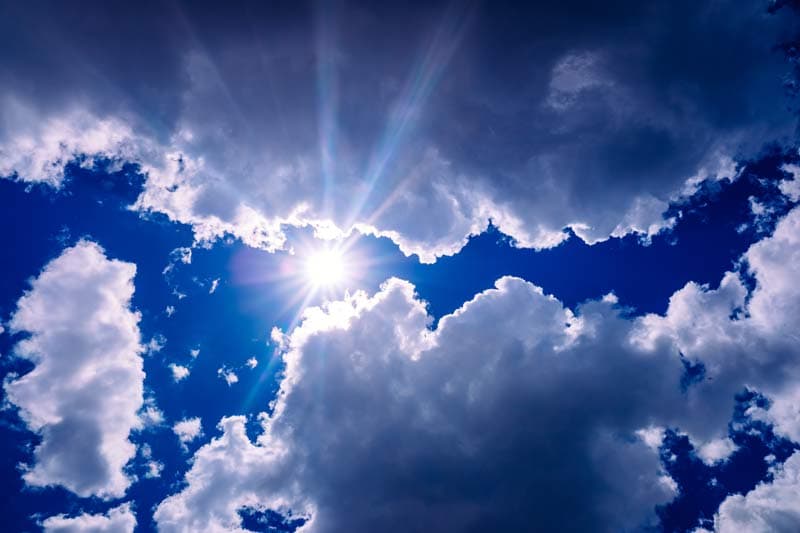
According to research, cloudy weather does not protect from UV rays. The reason is that UV rays are diffused and scattered by passing through clouds. These scattered UV rays can still damage the skin.
Sunlight consists of direct visible light and UV rays. UV rays have a shorter wavelength, so they are scattered and diffused by cloud cover. Clouds do not entirely block these diffused rays. Therefore getting a sunburn in overcast weather is quite possible.
It is recommended to use sunscreen even on cloudy days.
In a study, it was found that clouds do not block UV rays as much as they stop other components of light. However, this also depends on the thickness and location of the cloud.
Clouds can intensify UV radiation at the surface in some instances.
Do You Need Sunscreen in the Shade and Indoors?
Now we know the sun’s UV rays can even make it to most shaded areas.
If your house windows are not treated with UV laminated film, UV rays easily make their way inside the house. Hence, it’s advisable to wear sunscreen even in the shade, especially if sitting near a window.
When constructing a building, it is essential to consider shade structures carefully.
Conclusion
It’s important to protect your skin even in seemingly low-risk situations like being in the shade or indoors. Car windows don’t offer complete UV protection. UV rays can penetrate through clothing, deep into water, and even through clouds. Remember, prevention is always better than treatment. With the right information and strategies, we can keep our skin healthy and safe. Whether it’s wearing protective clothing and accessories, using UV-blocking window treatments, or regularly applying sunscreen, taking proactive steps towards sun protection is essential.
FAQs
Can you get a sunburn from the moon?
No, you can not get a sunburn from the moon. The moon does not reflect most of the harmful UV light. However, some UVA rays are reflected that are insignificant.
Do you sunburn faster in water?
You can get sunburned in water, but it is not necessarily faster than getting sunburned outside in the open. As you go deeper in the water, UV penetration gets weaker, reducing the chances of sunburn.
Can you get sunburned under a tent?
You can get sunburned under a tent if the fabric is thin. Harmful UVA rays of the sun have high penetration power. For complete protection, the fabric must have multiple layers of densely woven fabric.
Can you get sunburn from welding?
Yes, you can get sunburned from welding. The harmful UV exposure from welding can cause sunburned eyes, skin cancer, and aging.
Can you get sunburned through black clothes?
Although black clothes provide better UV protection than white clothes, it’s still possible to get a sunburn in black clothes with thin and loosely woven fabric. Therefore UPF rated clothing is recommended.
Can you sunburn through jeans?
Jeans (Denim) have a high UPF, which means it doesn’t let harmful UV rays pass through hence protecting against sunburn and other hazards of UV light.
Do curtains block UV rays?
It depends upon the fabric, most curtains don’t block UV rays completely. Curtains need to be thickly woven to provide UV protection.
Can you get sunburn through a shirt?
Yes, you can get a sunburn through a shirt. Normal fabric doesn’t completely stop the harmful UV rays of the sun.

